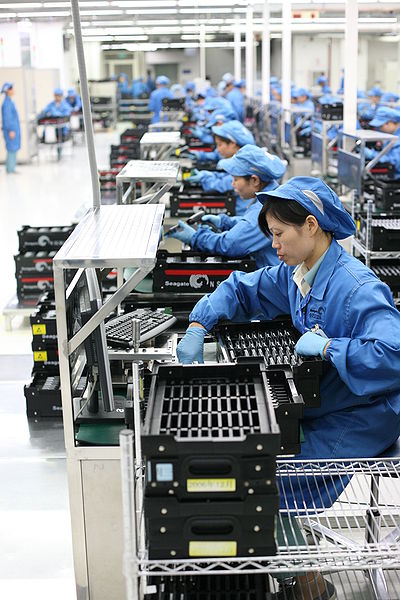Liu: Don’t blame China for poorly made products

With many quality products coming in from Chinese factories, where did China get the bad rep for making stuff that are of sub-par quality?
February 25, 2014
About three weeks ago, the Jade Rabbit — the first lunar rover launched by China about a year ago — had been experiencing some technical difficulties only after a month on the moon. The rover did not respond to the command control space center in China . Recently, around Valentine’s Day, the rover miraculously recovered from two weeks of idle waiting and is taking commands from China’s space station. Such a spectacle of “technical difficulty” is a cause for concern, especially when it involves a very expensive mission to the moon. However, it was not unexpected from a nation who is famous for making things that are simply “good enough” for certain intents and purposes.
We are all familiar with the little imprint of “Made in China” on the bottom of our cups, clocks, computers and just about everything we can think of in our home. It’s amazing how many things we own that we never thought were made in China. Apple products are a famous example of expensive devices that we associate with quality and innovation; all of them are built by Chinese factories. So where did China get the bad rep for making stuff that are of sub-par quality?
We can often think that China is completely responsible for anything about the product that goes wrong simply because it was made there. What many people don’t think of is that businesses prefer to outsource production to China because they want to cut cost. Since those businesses tend to pay the Chinese manufacturers beforehand, the workers have every intention to cut corners in order to crank out more of the product. Quality is simply not their priority. The only thing that matters to them is that the product is functional and that they can get the most profit out of the transaction.
This is not really the fault of Chinese workers at those factories since they are doing exactly what they are paid to do. The root of the problem is the lack of “institutional memory,” or the collective ideology, work ethic and know-how of a group of people. This memory preserves the company culture and can influence its actions, yet must be passed down via hands-on experience and interacting with people holding the same ideology.
Perhaps there is a cultural difference between China and the U.S. that explains why our rovers had no major problems roaming the surface of the moon while the Jade Rabbit malfunctioned within two months of landing. Being Chinese myself, and having lived half my life in Asia, I have a good knowledge of the values held in both Eastern and Western culture.
From what I’ve seen, the Chinese culture emphasizes the knowledge of theories and the gathering of information. They, however, are not encouraged to question the information they are given. This shows up in the careful and polite way people interact with each other; collaboration and harmony are highly valued among co-workers. Therefore, experimentation is risky since it challenges the norm, so innovation and creativity becomes limited. Today, overpopulation is a major issue in the country, and college graduates face brutal competition trying to find jobs. According to Maslow’s hierarchy, if your basic needs aren’t met, it is hard to find motivation to create something great. In a place where money is spread thin, finding ways to earn money becomes the thing on everyone’s minds. In that environment, making (or saving) money, by whatever means, becomes the ultimate goal.
The U.S., on the other hand, isn’t afraid to challenge the norm and think outside the box. The reason the inclination to “challenge the authority” is so ingrained in us may be because it was what gave birth to us as a nation. Being one of the wealthiest countries in the world, we enjoy many privileges that citizens in other countries could only imagine. We can afford to be creative and to share; since we have both the time and the resources to do so. The major difference that makes China prone to product malfunction is their lack of such resources.
That being said, China is opening up in this respect and the younger generation is more willing to venture outside the lines in pursuit of excellence, probably due to America’s salient entertainment industry. More and more Chinese factories are also improving on quality control in order to match its standards to the customer’s needs.
We are a product of our environment. We all do what we must to survive and to adapt to the values we are raised to believe in. Just because people have different values than the ones we have doesn’t mean they are inferior to us. If we can learn to understand the ways of another culture, then perhaps we will be better able to collaborate and bring the best of both worlds to the table.






